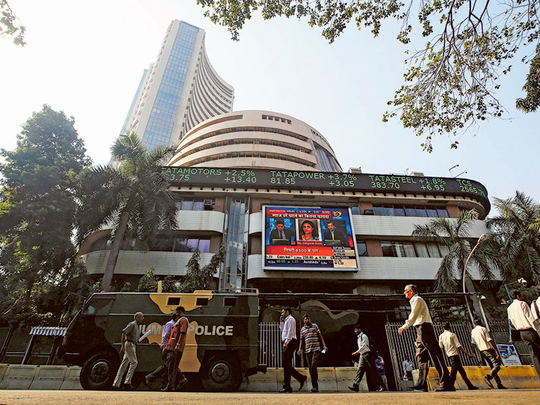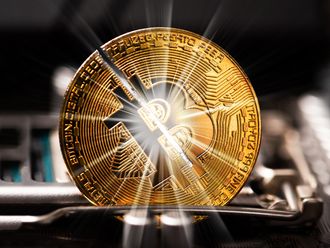
Dubai: Non-resident Indians living in the UAE should look beyond bank deposits to earn good returns on their investments.
As the Reserve Bank of India (RBI) eases monetary tightening amid falling inflation to boost growth, bank deposit rates would eventually come down, forcing investors to scout for attractive options like equities and gold, among others.
In fact, Union Bank of India joined several other public sector banks to cut deposit rates, after the RBI unexpectedly cut its repo rate by 25 basis points.
Union Bank of India reduced the base rate by 25 basis points to 10 per cent from 10.25 per cent, an indication that more banks would follow suit.
“Equities is the best place to be in India right now if you are a long-term investor, and mutual fund is always a good option to invest if someone doesn’t want to invest directly into equities,” said Preeti Bhambri, managing director at moneycamel.com, a personal finance and property portal based in Dubai.
A first-time investor in these markets with an investment over a one-year time frame should look at a balanced fund, weighted more towards equity than debt. In case of a long-term investor equities is the place to be in, said Bhambri.
The Bombay Stock Exchange benchmark Sensex continued its record breaking rally breaching the keenly-watched 29,000 mark buoyed by higher growth projections, and as investors felt that falling oil prices could help narrow its trade deficit.
“The Sensex has just been going up and up. The new Prime Minister is trying to do a lot of good things in the country and that has been and would boost sentiment in the future as well,” said Bhambri.
The Narendra Modi-led Bharatiya Janata Party has bypassed Parliament and hiked the foreign direct investment limit to 49 per cent. The federal government also opened doors to private operators to mine coal freely, without privatising the inefficient Coal India. In a recent meeting with business leaders, the Prime Minister also hinted of “unlimited reforms” that would enable the country to remove millions out of poverty.
The first test of the Modi government would be the announcements made in the budget regarding the steps taken to curtail fiscal deficit.
Betting on the positive economic outlook under the new government, investors have been pouring money into equities. The Sensex gained 37 per cent last year, triggering massive inflows from foreign investors.
Foreign funds bought a net $213.5 million of local shares on January 20, taking this year’s purchases to $436.7 million. The Sensex has gained 5.1 per cent this month and trades at 16 times projected 12-month earnings, compared with the MSCI Emerging Markets Index’s multiple of 11.4.
Golden touch
Indians need no advice when it comes to investing in gold. Indian households possess about 22,000 tonnes of the yellow metal, about three times more than held by the vaults of Federal Reserve.
Most of the investments in gold are in physical form either through jewellery or a coin or a bar.
Investors looking to invest in gold could also invest through the paper route or an exchange traded fund (ETF). Gold ETFs, which are offered by the National Stock Exchange, are units representing physical gold, which may be in paper or dematerialised form. These units are traded on the exchange like a single stock of any company.
Gold ETFs are intended to offer investors a means of participating in the gold bullion market without the necessity of taking physical delivery of gold, and to buy and sell that participation through the trading of a security on a stock exchange.
Currently about 14 asset management companies offer gold ETFs in India on the NSE, involving about 40-50 tonnes of the yellow metal. India’s total gold consumption stood at 864 tonnes in 2013, ahead of China, whose demand stood at 806 tonnes.
“It’s a good time to invest in gold. We expect further rally and prices may hit $1,400 by end of the year,” said Pradeep Unni, senior relationship manager with Richcomm Global Services.
“With enough macro economic damage done due to monetary easing and central bank intervention, we believe that gold is the ultimate safe haven for investors,” said Unni.
Gold traded near $1,290 an ounce, after gaining 10 per cent since January 1. It fell 2.2 per cent in 2014, with most retracement seen in later part of the year.
The key drivers for gold price has been safe haven demand and physical purchases from emerging markets like India and China.
“No one has faith in currencies anymore, so they are betting on age old saving technique of investing in gold,” said Unni.












